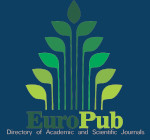STORY TELLING IN THE SELF-KNOWLEDGE PROCESS: EVERY STORY DESERVES TO BE TOLD
DOI:
https://doi.org/10.48017/dj.v7i4.2248Keywords:
playfulness, Identity, StoriesAbstract
With the reality of a pandemic world, it is impossible to deny the reflexes and negative consequences in the educational context, with regard to the use of playfulness in classes that have become totally virtual, where it is only possible to see faces on a computer screen. It was possible to perceive the closeness of the family in social isolation intensifying, the routine being modified to protect everyone's health. Storytelling as a playful activity arouses curiosity, imagination, develops thinking and autonomy, as well as providing the possibility to express emotions and resolve conflicts. The project, described here, assumes that storytelling in a playful way can reconnect students to their own history, to their identity, exploring the proximity with their families from family photos, transmuting the monotonous remote teaching into a playful and more interactive class, with the objective of creating new methods and means that favor the acquisition of knowledge in distance learning, aiming to introduce them effectively, using play as a strategy to provide significant learning in the area of languages . In this way, the work contributes to the encouragement of active and creative methodologies, relating the report of individual experiences to cultural exchange and recognition of the roots of each student, promoting interdisciplinarity, cognitive and social development, and combining the work developed at the University to the community in order to assist it in guidelines and activities that adapt to new times and help to innovate the school environment.
Metrics
References
Abreu, Z. T. de O. (2020). O Impacto da Falta do Lúdico na Aprendizagem nos anos Iniciais do Ensino Fundamental. Pedagogia-Unisul Virtual. Disponível em: https://riuni.unisul.br/bitstream/handle/12345/10640/AD7%20certa.pdf?sequence=1&isAllowed=y >. Acesso: 02 de abr. 2021.
Araujo, F. S. (2020). A Importância Da Ludicidade Durante A Pandemias Do Covid-19 Como Instrumento Metodológico Na Educação Infantil Para O Desenvolvimento Integral Do Educando. In: CONGRESSO NACIONAL DE EDUCAÇÃO (CONEDU), 7, Maceió. Educação como (re)Existência: Mudanças, Conscientização e Conhecimentos. Alagoas. Editora Realize. Disponível em: https://editorarealize.com.br/editora/anais/conedu/2020/TRABALHO_EV140_MD1_SA9_ID4770_01092020213712.pdf. Acesso:03 de abr. 2021.
Arruda, J. S.; Siqueira, L. M. R. de C. (2020). Metodologias Ativas, Ensino Híbrido e os Artefatos Digitais: sala de aula em tempos de pandemia. Práticas Educativas, Memórias e Oralidades - Rev. Pemo, 3 (1), p. 1-14. Disponível em: https://revistas.uece.br/index.php/revpemo/article/view/4292. Acesso em: 26 abr. 2021.
BRASIL. Ministério da Educação. (2018). Base Nacional Comum Curricular. Brasília.
Felix, J. Da C. et al. (2020). O PAPEL DA CONTRAÇÃO DE HISTÓRIA NA EDUCAÇÃO INFANTIL. Educação e (Trans) formação, 5 (1), p. 64-77.
Maciel, P. S. (2017). CONTAÇÃO DE HISTÓRIAS: CAMINHOS PARA A CONSTRUÇÃO IDENTITÁRIA DE CRIANÇAS QUILOMBOLAS. Seminário Interlinhas, 5 (2), p. 131-140. Disponível em: https://www.revistas.uneb.br/index.php/asipc/article/view/4827. Acesso em 03 de mai. 2021.
Miranda, K. K. C. de O. et al. (2020) Aulas remotas em tempo de pandemia: desafios e percepções de professores e alunos. In: CONGRESSO NACIONAL DE EDUCAÇÃO (CONEDU), 7, Maceió. Educação como (re)Existência: Mudanças, Conscientização e Conhecimentos. Alagoas. Editora Realize. Disponível em: https://editorarealize.com.br/editora/anais/conedu/2020/TRABALHO_EV140_MD1_SA_ID5382_03092020142029.pdf. Acesso em 26 abr. 2021.
Modesto, M. C.; Rubio, J. de A. S. (2014). A importância da ludicidade na construção do conhecimento. Revista Eletrônica Saberes da Educação, 5 (1), p. 1-16. Disponível em: http://docs.uninove.br/arte/fac/publicacoes_pdf/educacao/v5_n1_2014/monica.pdf. Acesso: 26 de abr. 2021.
Piaget, J. (1971). A formação do símbolo na criança: imitação, jogo e sonho, imagem e representação. Trad. Álvaro Cabral. Rio de Janeiro: Zahar.
Polonia, A. da C.; Dessen, M. A. (2005). Em busca de uma compreensão das relações entre família escola. Psicologia escolar e educacional, 9 (2), p. 303-312.
Sant’anna, A. R. (2011). Contação de estórias: vida e realidade. In: PIETRO. B. (org.). Contadores de Histórias: um exercício para muitas vozes. 1 ed. Rio de Janeiro, p. 240.
Sousa, L. O. de; Bernardino, A. D. (2011). A contação de histórias como estratégia pedagógica na educação infantil e ensino fundamental. Educere et Educare, 6 (12), p. 235-249. Disponível em: http://e-revista.unioeste.br/index.php/educereeteducare/article/view/4643/4891. Acesso em: 26 abr. 2021.
Vygotsky, L. (1988). A formação social da mente: O desenvolvimento de processos psicológicos superiores. 6ª ed. São Paulo.
Additional Files
Published
How to Cite
Issue
Section
License
Copyright (c) 2022 Cristina Hill Fávero

This work is licensed under a Creative Commons Attribution 4.0 International License.
The Diversitas Journal expresses that the articles are the sole responsibility of the Authors, who are familiar with Brazilian and international legislation.
Articles are peer-reviewed and care should be taken to warn of the possible incidence of plagiarism. However, plagiarism is an indisputable action by the authors.
The violation of copyright is a crime, provided for in article 184 of the Brazilian Penal Code: “Art. 184 Violating copyright and related rights: Penalty - detention, from 3 (three) months to 1 (one) year, or fine. § 1 If the violation consists of total or partial reproduction, for the purpose of direct or indirect profit, by any means or process, of intellectual work, interpretation, performance or phonogram, without the express authorization of the author, the performer, the producer , as the case may be, or whoever represents them: Penalty - imprisonment, from 2 (two) to 4 (four) years, and a fine. ”















.png)




